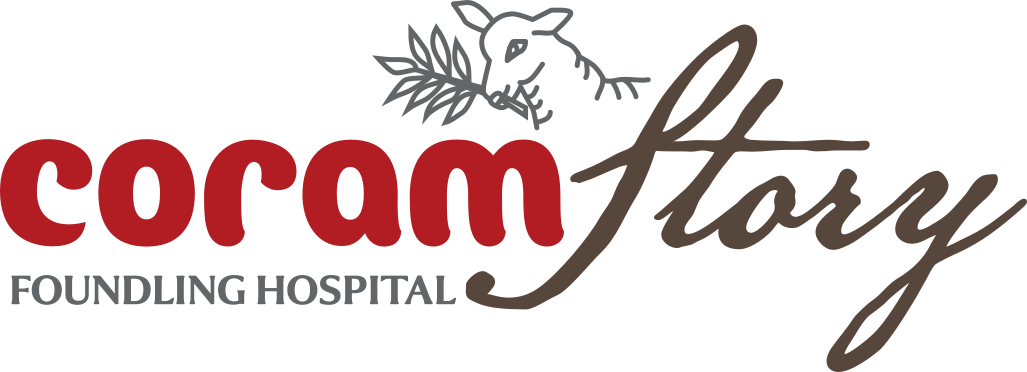Former Foundling Hospital pupil John Caldicott has shared poignant childhood memories of his time in care as part of an interview today on BBC London’s Jo Good show.
John was accompanied by Voices through Time Programme Manager Amy Cotterill to discuss the launch of Coram’s ambitious project to digitise our historic archive dating back to when the charity was established as the Foundling Hospital in 1739.
Discussing the origins of the Foundling Hospital, Amy Cotterill said that Thomas Coram had been “moved by the plight of women in poverty with children that they couldn’t look after”, adding that Thomas Coram “wanted to set up an institution to give the children as good a start in life as possible”.
John Caldicott, who entered the Foundling Hospital in 1936, echoed this adding:
“The Foundling Hospital certainly was revolutionary. I went to a building that was central heated, where the children were well fed and the medical care was second to none.”
John spoke about the discipline and sense of independence that the Foundling Hospital cultivated and how the focus on education and apprenticeships was to enable Foundling pupils to “go out into the world as useful citizens”.
“Parted from mothers”
John also spoke about the emotional difficulties that children in the Foundling Hospital faced when they “parted from their mothers at three months, in foster care until five and then uprooted from their foster parents into this large school” with “great big buildings” which many children found “overwhelming”. Amy noted that “our understanding of child psychology has moved on so much in the 20th century” and that “organisations in the past had the best of intentions”.
Amy also described the Foundling Hospital’s “revolutionary” approach in the 1700s: “Nobody in the UK was looking after these children. A lot of the work that the Foundling Hospital did was ahead of its time, inoculating children against smallpox a century before that was common practice. They were educating children and teaching them to read and write when the poorest children in society wouldn’t have learned those skills. They were even educating girls which was seen as a pointless exercise in society. The Foundling Hospital ensured that children had those skills so that they could find gainful employment when they left”.
Although the residential care of children was phased out by 1955, the charity was renamed and continues today as Coram to provide better chances for children, including through adoption, advocacy and championing children’s rights.
Help us transcribe archives
Amy also issued a call to any listeners interested in volunteering with the Voices Through Time project, which is funded by The National Lottery Heritage Fund:
“We need help transcribing the documents held in the archive so we can make them available online for researchers and other interested parties to learn from and help us to uncover these stories”.
Amy noted that “because of the age of the documents and the interest in them, they have become very fragile”, highlighting the need to protect over 112,000 pages of documents for the future.
The Voices Through Time will also undertake community projects with care experienced young people using the archive documents as inspiration for creative project including poetry, filmmaking and podcasts.
Listen to the feature here (from around 3hr07 in).
Find out more about stories of care throughout the ages, the history of the Foundling Hospital and our range of volunteering opportunities.
Copyright © Coram. Coram licenses the text of this article under Creative Commons Attribution-NonCommercial 4.0 (CC BY-NC).

